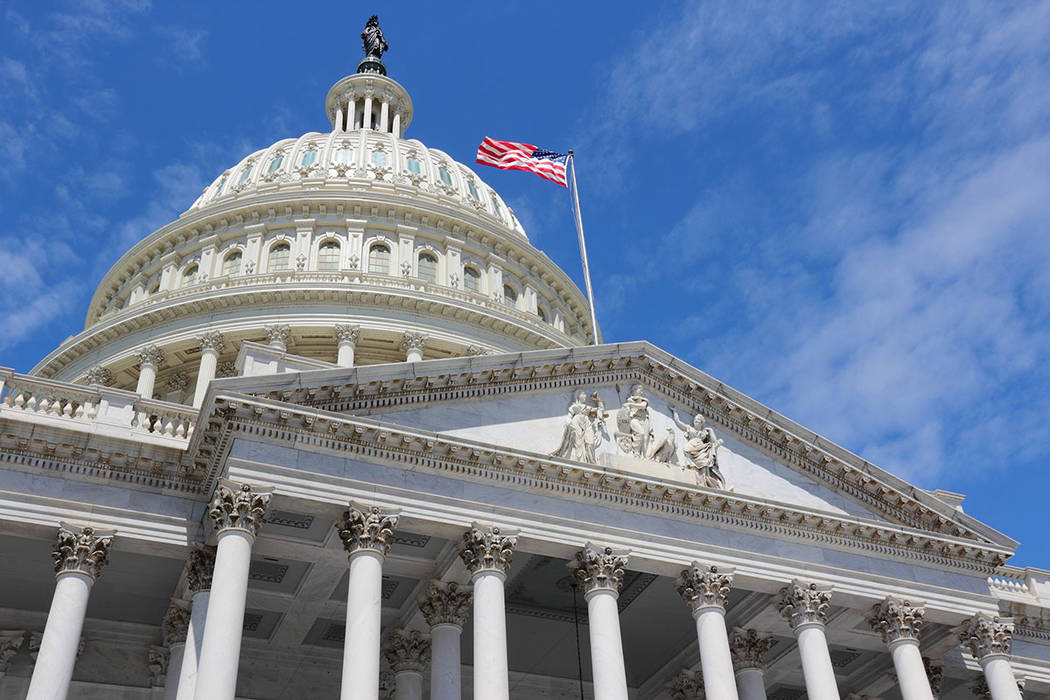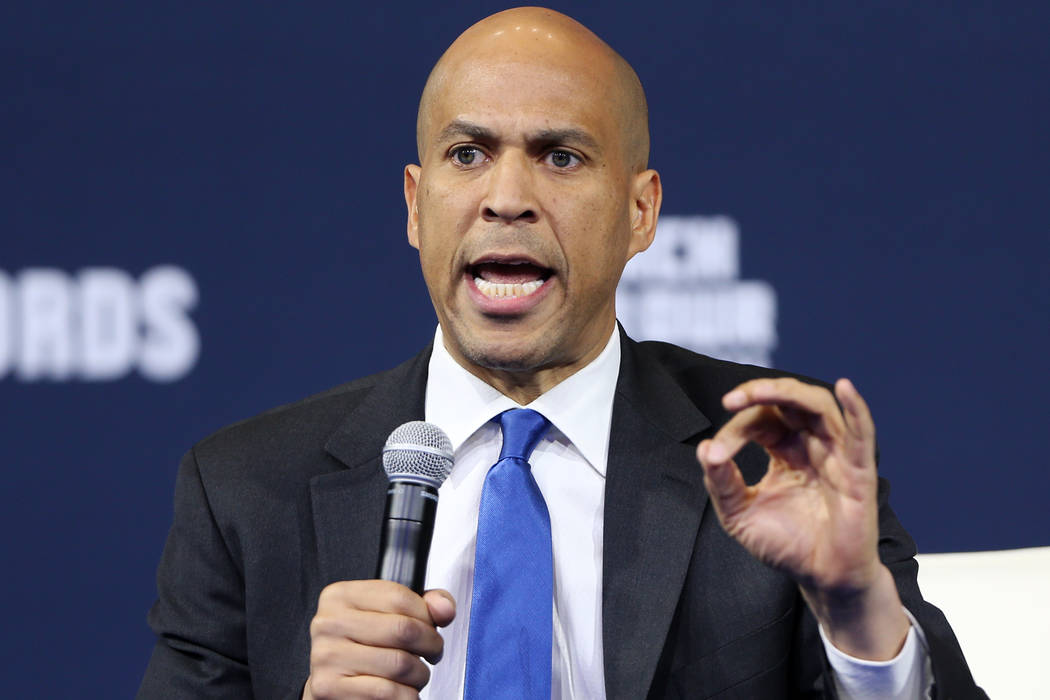Congressman Horsford announces legislation to increase GI Bill assistance to veterans
Ahead of Veterans Day, Nye County’s congressman, U.S. Steven Horsford, D-Nevada, introduced the Veteran Education and Transfer (or “VET”) Extension Act.
The legislation seeks to increase the months of assistance veterans can receive from the Post-9/11 GI Bill, allow veterans to transfer those benefits to a dependent after leaving active service, and prevent interference in these benefits from the Department of Defense. U.S. Sen. Cory Booker, D-New Jersey, introduced legislation in the Senate.
“Since the birth of our nation, untold numbers have answered the call to put their country above themselves. With this bill, I hope we are able to repay a small portion of the debt to these brave souls for the sacrifices they’ve made for our country and our freedoms,” Horsford said in a news release. “I’ve heard from veterans in my district who have had to jump through hoops just to access the benefits that they have been promised by our government. It is my honor and my responsibility to remove any barriers that these brave men and women face in accessing the benefits that they have earned.”
Currently, 6,635 Nevada veterans in Nevada and 7,521 New Jersey veterans utilize Post-9/11 GI Bill benefits. Nationally the number is 986,577. Around 1,800 veterans currently attend the University of Nevada, Las Vegas and another 1,550 attend the College of Southern Nevada. This bill would ensure these veterans are not deprived of the assistance they need or the ability to transfer their benefits to members of their families.
In July 2019, the Department of Defense announced a policy requiring service members who served 16 years or more to commit to serving an additional four years in order to transfer the education benefit of their GI Bill.
Though the policy has been delayed until January 2020, the threat of this policy has negatively impacted thousands of service members and their dependents who may make family planning decisions based on the availability of their benefits. The extension act would officially block and eliminate that policy and ensure veterans and their families across the country can access the benefits of the Post-9/11 GI Bill that they are owed.
“While the GI bill is one of the boldest and most consequential pieces of legislation to support veterans, many student veterans today exhaust their limited benefits before they can reasonably complete a degree, and face red tape when they try to transfer their hard-earned benefits to their children after they separate from the military,” Sen. Booker said in a statement.
“This bill will make much-needed updates to the GI Bill to close these loopholes to bring the GI bill more in-line with what its original architects intended. Our nation’s veterans risked their lives to defend our freedoms — it’s our responsibility to ensure they receive the benefits they’ve earned when they return home,” said Booker, who is among the candidates seeking the Democratic nomination for president.
The Veteran Education and Transfer (or “VET”) Extension Act addresses these issues by:
■ Extending Eligibility to Cover Remedial Courses: The legislation would increase the months of assistance available to qualifying veterans by the lesser of 15 months, or in the case of an individual who has already completed remedial courses, the full-time equivalent number of months of educational assistance that they used to complete such courses.
■ Expanding Ability to Transfer Benefits to Dependents: The legislation would allow veterans who did not have dependents at the end of their service to later transfer the education benefits should they come to have an eligible dependent.
■ Ending Restriction on Benefits Transfers: The legislation would reverse the recently announced Department of Defense policy of restricting the transfer of education benefits for service members with more than 16 years of total service and would prevent the Department of Defense from restricting the transfer of such educational benefits by service members to their dependents in the future.



















